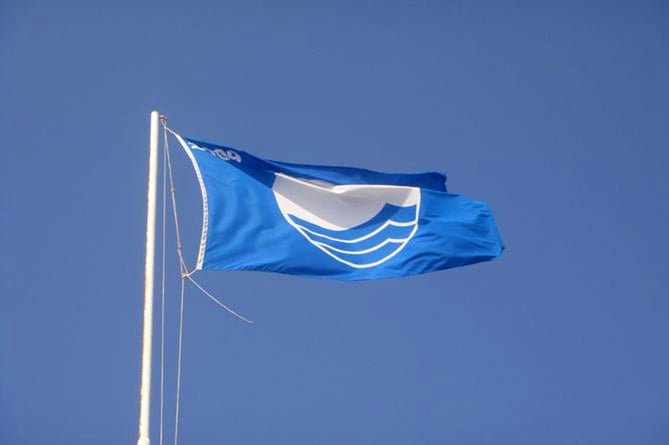Image Credit: Cambrian News
Introduction
Greece has long been celebrated for its stunning coastlines, home to some of the world’s most pristine beaches. Many of these beaches have held the prestigious Blue Flag certification, a hallmark of environmental excellence and sustainable tourism. However, in recent years, several Greek beaches have lost their Blue Flag status, raising concerns about environmental degradation and management practices. What went wrong? Let’s dive into the factors behind this decline and explore how Greece can restore its beaches to their former glory.
What is the Blue Flag Program?
Origins and Purpose
The Blue Flag program was established in 1985 as an international initiative to recognize beaches, marinas, and sustainable boating tourism operators that meet high environmental and quality standards. Managed by the Foundation for Environmental Education (FEE), the program has become a global benchmark for clean and sustainable beaches.
Criteria for Certification
To earn the Blue Flag, a beach must meet stringent criteria in the following areas:
- Environmental Quality: Water must be crystal clear and pollution-free.
- Safety and Accessibility: Facilities like lifeguards, first aid stations, and wheelchair access must be in place.
- Sustainability Measures: Beaches should promote education and implement eco-friendly policies to minimize environmental impact.
The Role of Greek Beaches in Tourism
Greece as a Tourist Hotspot
With over 13,000 kilometers of coastline, Greece attracts millions of tourists annually, making it one of the world’s top travel destinations.
Contribution of Beaches to the Economy
Beaches are central to Greece’s tourism sector, generating significant revenue through hospitality, transport, and local businesses. Blue Flag certification often acts as a magnet for high-spending international travelers.
Why Blue Flag Matters to Greek Beaches
Boosting International Reputation
Holding a Blue Flag enhances a beach’s global appeal, reinforcing Greece’s image as a paradise for sun-seekers.
Driving Tourism Numbers
Certified beaches draw more tourists, translating to higher revenue for local economies and businesses.
Decline of Blue Flag Beaches in Greece
Environmental Challenges
- Pollution: Increasing litter, untreated wastewater, and marine debris have tarnished water quality.
- Erosion: Overdevelopment along coastlines has accelerated natural erosion, diminishing beach quality.
Poor Management Practices
Inconsistent maintenance of facilities, lack of enforcement of eco-friendly policies, and inadequate funding have contributed to the loss of certifications.
Effects of Climate Change
Rising sea levels, extreme weather events, and shifting ecosystems have further complicated efforts to maintain high environmental standards.
Specific Examples of Lost Blue Flag Status
Case Studies
Beaches like X in Crete and Y in the Cyclades, once proud holders of the Blue Flag, have lost their status due to failing water quality tests and infrastructure neglect.
Consequences of Losing the Blue Flag
Economic Impacts
The loss of Blue Flag status can deter environmentally conscious tourists, leading to reduced income for local businesses.
Environmental Repercussions
Degraded beaches face long-term harm, including habitat loss for marine life and diminished natural beauty.
Efforts to Regain Blue Flag Status
Government Initiatives
The Greek government has launched programs to monitor water quality, restore ecosystems, and fund sustainable infrastructure projects.
Local Community Involvement
Communities are stepping up through beach cleanups, education campaigns, and advocacy for stricter environmental policies.
Lessons for Sustainable Tourism
Best Practices from Other Countries
Countries like Spain and Portugal have successfully implemented policies to protect their beaches. Greece can adopt similar measures to ensure long-term sustainability.
Long-term Planning for Greece
A comprehensive approach involving policymakers, local businesses, and tourists is vital to safeguard the future of Greek beaches.
How Tourists Can Help
Responsible Tourism Practices
Visitors can contribute by avoiding single-use plastics, respecting wildlife, and supporting eco-friendly accommodations.
Supporting Sustainable Businesses
Choosing to spend money on services and products that prioritize sustainability can make a significant impact.
Conclusion
The loss of Blue Flag Greek Beaches Lost certifications serves as a wake-up call. While the challenges are undeniable, there is hope for revival through collaborative efforts, innovative policies, and responsible tourism. By prioritizing sustainability, Greece can restore its beaches to their former glory and ensure they remain global treasures for generations to come.
Also Read: Jay Slater Press Conference: Key Moments and Takeaways
FAQs
- What is the Blue Flag certification?
It’s an international recognition for beaches, marinas, and tourism operators meeting high environmental and safety standards. - How does climate change affect Greek beaches?
Rising sea levels, erosion, and extreme weather events disrupt ecosystems and damage coastal areas. - Which Greek beaches still hold Blue Flag status?
Beaches like Elafonissi in Crete and Porto Katsiki in Lefkada continue to uphold Blue Flag standards. - What can tourists do to protect these beaches?
Tourists can adopt eco-friendly practices like avoiding littering, using reusable items, and supporting sustainable businesses. - Are there efforts to expand Blue Flag certifications in Greece?
Yes, the government and local organizations are working to restore and expand certifications through improved policies and initiatives.



Leave a Reply